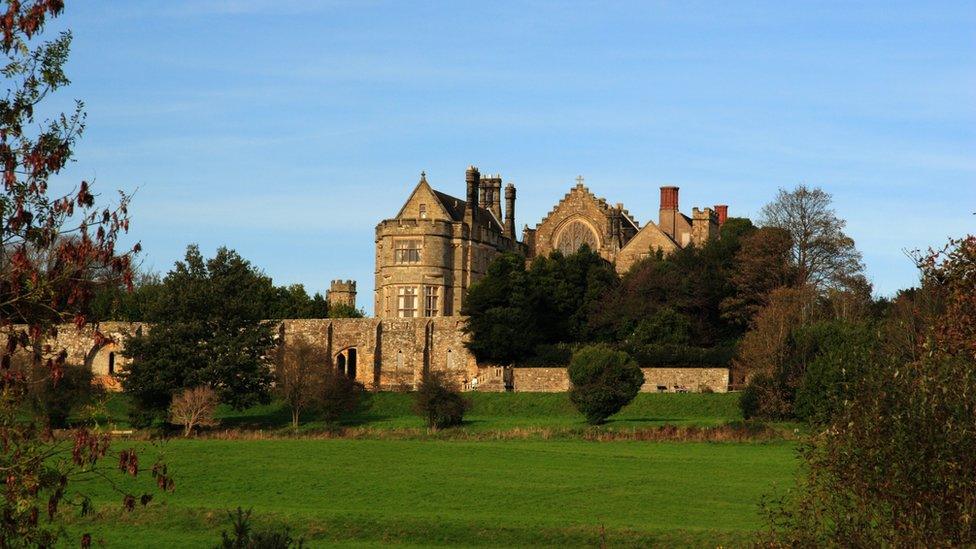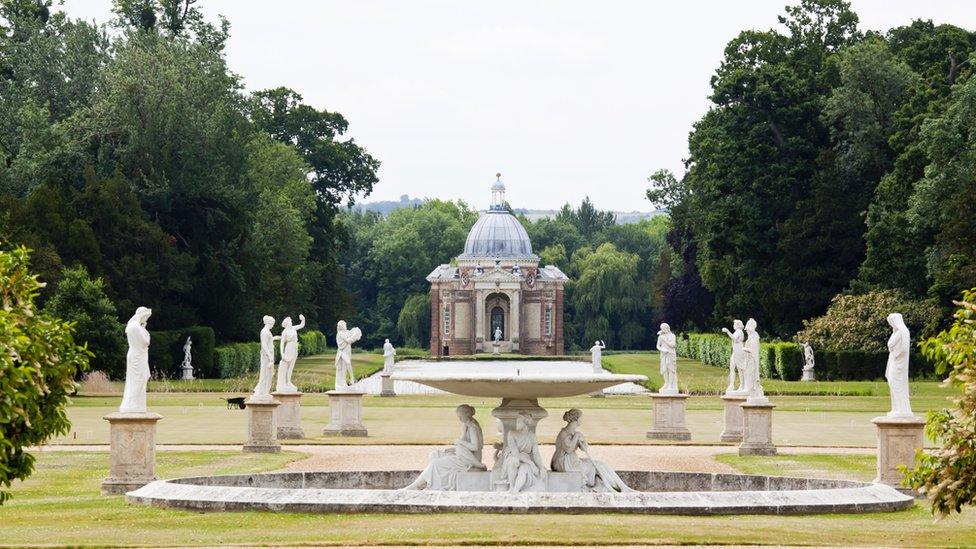English Heritage to reopen sites after virus lockdown
- Published

Battle Abbey is to be one of the first English Heritage sites to reopen
Six sites managed by English Heritage are due to reopen on Saturday after closing amid the coronavirus outbreak.
The charity, which looks after 400 historic buildings, monuments and outdoor spaces, says 45 more sites will be opened at the beginning of July, with the remainder open by August.
Visitors will need to book in advance and stick to a designated arrival time.
Barriers, floor markers, one-way systems and hand sanitiser may be used to help social distancing and hygiene.
English Heritage closed its staffed sites in March but made activities available online, including 3D virtual tours, broadcast history lessons and a live stream of the sky over Stonehenge.

Sites opening on Saturday 13 June
Battle Abbey and Battlefield, East Sussex
Beeston Castle and Woodland Park, Cheshire
Brodsworth Hall and Gardens, South Yorkshire
Kenilworth Castle and Elizabethan Gardens, Warwickshire
Old Sarum, Wiltshire
Wrest Park, Bedfordshire


Wrest Park in Bedfordshire will reopen on 13 June
The news has been broadly welcomed. Commenting on Facebook, Scott Carlyle Cockayne said: "I've booked to bring my family to Kenilworth Castle. It's also my birthday so what a way to celebrate after the last few months."
Others, however, have complained no sites in their region have been included in the first wave of openings, including the North East, and Devon and Cornwall; while some paid-up members voiced annoyance they would not get priority booking over non-members.
Historic England, the government body that oversees English Heritage, said the heritage sector had been "hit hard" by the measures implemented to deal with Coronavirus.
About 200 free-to-enter sites, which do not need advance booking, are already open, including Iron Bridge, Caister Roman Fort, and parts of Hadrian's Wall.
The National Trust began its phased reopening on 3 June.